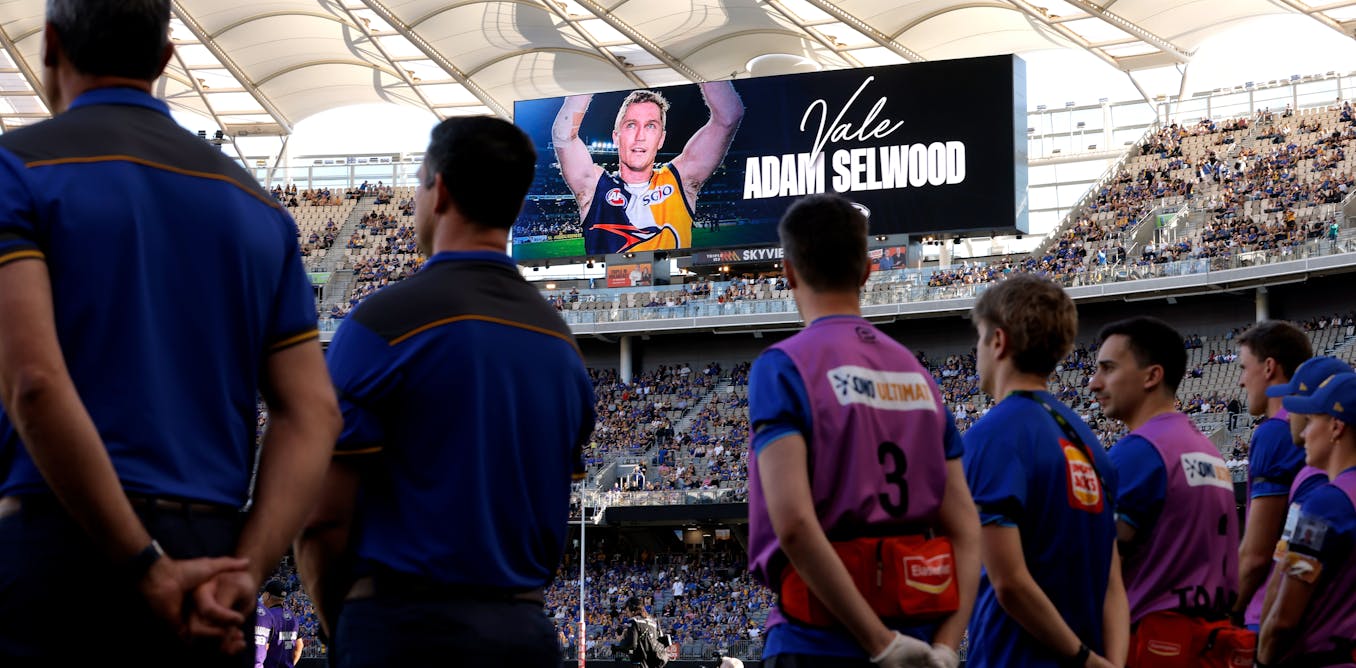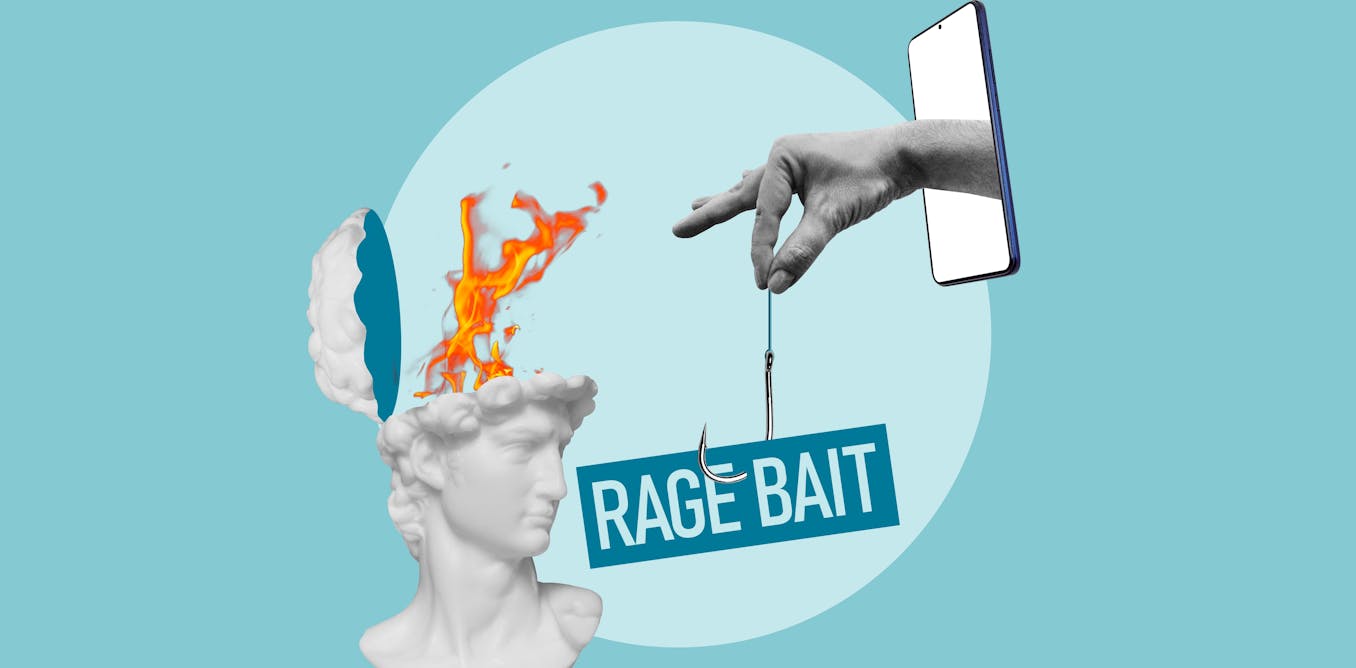The death of former AFL footballer Adam Selwood, less than four months after the death by suicide of his twin Troy, is an unfathomable tragedy for the Selwood family.
The devastating news has sent shockwaves through the AFL and wider Australian communities.
The shock and grief have prompted many people, from current and former AFL players to fans and media commentators, to seek actions and solutions.
The immediate priority is to ensure the Selwood family and anyone who is currently struggling with mental ill-health and may be adversely impacted by this latest tragedy, is supported and offered hope for the future.
In addition, the AFL community and mental health advocates have implored the AFL to introduce a mental health round, similar to its other themed rounds such as its ANZAC commemorations or the current Sir Doug Nicholls round, which celebrates Aboriginal and Torres Strait Islander players, cultures and communities.
Better late than never?
I first raised the idea of a mental health round for the AFL in 2010 with then-CEO Andrew Demetriou after I was fortunate enough to be named Australian of the Year.
This allowed me to gain access to prominent leaders to champion the fight against the alarming rise of mental ill-health in Australia – especially young people.
The idea never materialised, but I strongly believe a mental health round can play a significant role in reimagining the national conversation on mental health.
However, there are pros and cons to this, and it is critical it is approached in a strategic fashion that goes beyond just awareness and anti-stigma campaigns.
It must instead deliver real and meaningful reform to reduce the impact of mental ill-health and preventable deaths from suicide.
The problem we face
Mental ill-health affects all Australians directly or indirectly – suicide is the number one cause of death for people under 40.
More than 3,000 families every year lose a loved one to suicide and these are largely preventable deaths.
This growing public health crisis creates a huge burden that is social, emotional and economic.
In 2021, the Productivity Commission estimated the cost to Australia of our neglect of mental ill-health and suicide: around A$200 billion per year.
Up to 75% of all mental disorders begin before the age of 25.
Suicide is the biggest killer of young people, and two in five young people now experience mental ill-health every year, a 50% increase since 2007.
Athletes sit within the peak age of risk for mental ill-health, and elite sport can come with unique pressures that heightens risk.
While the AFL and most clubs have engaged strongly around this issue and have sought to provide support for current and former players, the wider mental health crisis extends far beyond the boundaries of the sporting arena.
Now the AFL has a unique opportunity to drive significant change.
Benefits and risks of a mental health round
A mental health round would build on key recommendations from The Lancet Psychiatry’s 2024 commission on youth mental health.
Produced by a global consortium of world-leading psychiatrists, psychologists, academics and young people, it identified the need for “high-profile societal champions” to help sustain “high-quality media attention, which is crucial to any political campaign”.
It highlights societal champions (such as sporting bodies and figures), alongside the unified voice of health and research experts “play a key role in ensuring a message is received by a wider audience and appeals to the public in order to gain support from policy makers”.
This approach must be underpinned by powerful storytelling, which emphasises:
Positive stories of effective care and innovation, combined with credible first-person accounts from service users and their families and carers.
The AFL is uniquely positioned to deliver this by uniting athletes, fans, media platforms and grassroots programs.
It has taken on this role before with positive results, improving awareness and raising money for our ANZACs, as well as the fight against motor neurone disease (MND) – a relatively rare condition compared to mental illness and suicide.
However, it is imperative any such approach moves beyond the well-meaning but tired awareness campaigns that merely encourage people to “check on your mates”, “speak up if you’re struggling” or suggest the solution is simply a matter of improving “resilience”.
That can be code for “just pull yourself together” or “toughen up” – language that is all too familiar in footy circles.
Some elements of the sporting media may need to look in the mirror here.
Anti-stigma campaigns are similarly ineffective in isolation.
A key objective of a mental health round should also be to engage and empower grassroots Australian communities to demand investment the mental health crisis urgently requires.
There is not much use urging people to seek help if expert mental health care is inaccessible or of poor quality. We can rely on world-class cancer care when we need it, but not so mental health care.
In addition to rapid and free access to high quality care, we also need a major boost to scientific research to create new treatments and fuel prevention.
The AFL is already a case study in how to galvanise medical research in another neglected area via its partnership with the FightMND campaign, an incredible initiative that has raised both public engagement and precious funds for scientific discovery.
A step forward?
To honour the tragic deaths of Adam and Troy Selwood and the tens of thousands of families who have been devastated by suicide in recent years, Australia needs to do something about it.
The AFL is uniquely positioned to take a decisive leadership role on this issue.
But a mental health round must ensure public mental health experts are central to its design and delivery, so it drives not just conversation but real, lasting change.
If this article has raised issues for you, or if you’re concerned about someone you know, call Lifeline on 13 11 14.

The post “15 years ago, I urged the AFL to launch a mental health round. Now it’s time for action” by Pat McGorry, Professor of Psychiatry, The University of Melbourne was published on 05/20/2025 by theconversation.com





































Leave a Reply